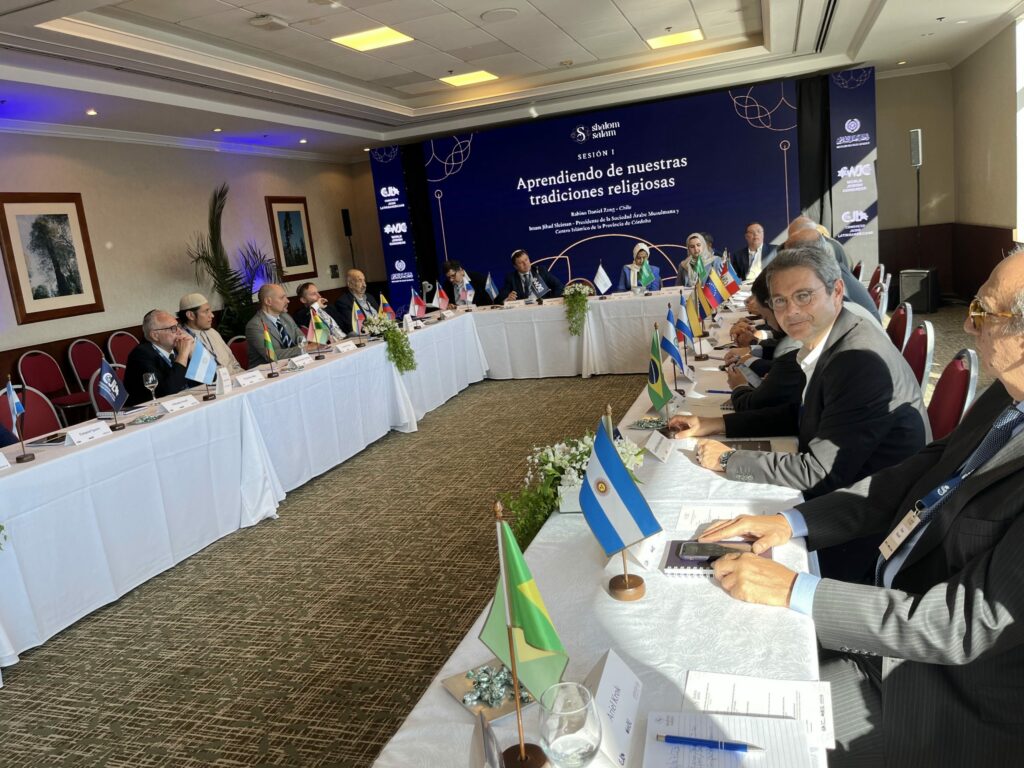Rabbi Marcelo Polakoff taught us that the word Acher -neighbor- in Hebrew, has the same root as the word Ach – brother-. Being able to see a brother in your neighbor, that was what the first face-to-face meeting of Jewish and Muslim leaders in Latin America was about, which took place on July 10th and 11th, in Buenos Aires, Argentina.
We learn from our religious traditions, we debate how we see each other.
We share experiences of exchanging good practices. We talk about prejudices and stereotypes and finally we project the challenges that lie ahead. The meeting was organized and promoted by the World Jewish Congress, the Muslim World League and the Latin American Jewish Congress.
We all arrived with our hearts open and gathered around a table for lunch, without prior introductions, sharing dishes we were embraced by a dialogue without make-up, which allowed us to break the ice in this type of event right away. The environment was relaxed, the dynamics were interesting, we introduced ourselves, sharing our experiences and learning from the stories of others. Latin America is a fertile field of good practices between Muslims and Jews. There was no lack of stories and memories of good relationships and understanding between the immigrants who arrived in these lands from both communities. This practice continues until today, not even the terrorist attacks against Israeli and Jewish targets in Argentina created a break in this peaceful coexistence.
Today there is a new generation of leaders in both communities, there are very few immigrants who are still active as leaders, but what matters is to continue this fraternal dialogue. We are monotheists, we have similarities in food, all Kosher food is Halal, women also occupy leadership positions, there are sacred texts that, when used well, only desire respect for others, even if they are not of the same religion. Education occupies a central place, we have similar mourning practices, we consider a good relationship with Christians fundamental, Jerusalem is the opposite of monotheism, we understand that dialogue must be above differences. We recognize that we are different, but it is in diversity that we find richness.
Together we must fight Islamophobia, Judeophobia and any other form of discrimination or attack against any religion.
The meeting, which already took place in virtual form during the pandemic, was the first in person and all present wish it to be the first of many.
We say goodbye with the wishes of Salam-Shalom and leave for our destinations with the commitment to encourage our communities to get involved in this dialogue.
Guershon Kwasniewski
Rabbi of SIBRA -Sociedade Israelita Brasileira- and one of the representatives of CONIB -Israeli Confederation of Brazil- in the interreligious dialogue, Representative of Latin America on the Board of the WUPJ.


